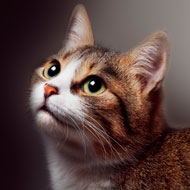
Government review underway after child killed by air weapon
The RSPCA has responded to a government review of air weapons by calling for mandatory licensing in England and Wales.
A review was launched after 13-year-old Benjamin Wragge, from Suffolk, died in May 2016 after being accidentally shot with an air weapon. Her Majesty’s senior coroner for the county, Dr Peter Dean, wrote to the Home Office asking for a review of the legislation covering the use and manufacture of such weapons, to prevent future tragedies.
David Bowles, the RSPCA’s assistant director of external affairs, said: “It is heartbreaking that such a tragic incident has sparked this review and our thoughts go out to Benjamin’s family and friends, but we hope that any future regulation of these weapons in England and Wales will better protect people and animals.”
Another child, 18-month-old Harry Studley, was seriously injured in Bristol last July, after a neighbour shot him with an air rifle. A government review of the legislation was subsequently announced at the end of last year.
The RSPCA said it received around 4,500 calls in five years about attacks on animals using such weapons. Wild birds were the most commonly reported victims last year, with the charity receiving 519 calls alleging attacks. Calls in 2017 also reported attacks on 341 cats, 125 wild mammals and 111 dogs.
Legislation in Scotland and Northern Ireland currently requires anyone who possesses, purchases or uses an air weapon to have a licence.
Mr Bowles added: “The RSPCA has long been calling for stricter controls over airguns as well as better education and explanation of the law for those buying one. Our 24-hour cruelty hotline receives hundreds of calls every year reporting airgun attacks on animals.
“Animals can suffer horrendous injuries and often die as a result of airgun attacks and these weapons are potentially extremely dangerous for people as well.”



 The Veterinary Medicines Directorate (VMD) is inviting applications from veterinary students to attend a one-week extramural studies (EMS) placement in July 2026.
The Veterinary Medicines Directorate (VMD) is inviting applications from veterinary students to attend a one-week extramural studies (EMS) placement in July 2026.